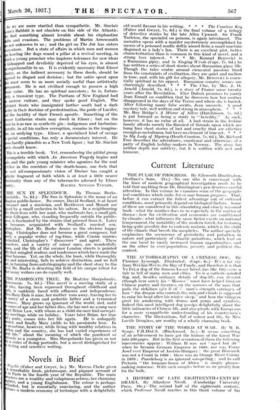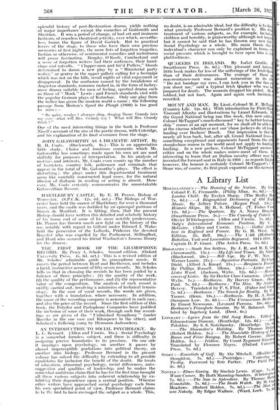splendid history of post-Restoration drama, yields nothing of major importance
except the comedies of Goldsmith and Sheridan. It was a period of change, of bad art and insincere fashions, of ceaseless theatrical activity, over which, neverthe- less, looms the .figure of David Garrick. But to practical lovers of the stage, to those who have their own precious memories of first nights, the mere lists of forgotten tragedies, fustian or otherwise, of sentimental comedies and melodrama will prove fascinating. Murphy, O'Keefe, Cumberland and a score of forgotten writers had their audiences, their hand- claps and catcalls. " (lapper-men and hir'd Puffers," bloods determined to damn a hew play by a " Ministerial party writer," or gentry in the upper gallery calling for a hornpipe which was not on the bills, recall nights of vital enjoyment or disapproval. In the confusion caused by the breakdown of
Augustan standards, romance rushed in, in the form of lachry- mose drama suitable for men of feeling, spectral drama such
as those of " Monk " Lewis ; and French standards vied with the popular German plays of Kotzebue. Only one play from the welter has given the modern world a name ; the following passage from Morton's Speed the Plough (1800) is too good to miss :- " Be quiet, woolye ? aleways ding, dinging Dame Grundy into my ears-what will Mrs. Grundy z.ey What will Mrs. Grundy think 1"
One of the most interesting things in the book is Professor Nieoll's account of the rise of the poetic drama, with Coleridge, and his explanation of its final severance from the stage.























































 Previous page
Previous page